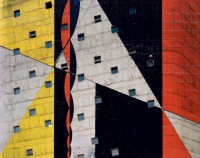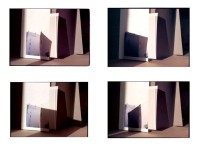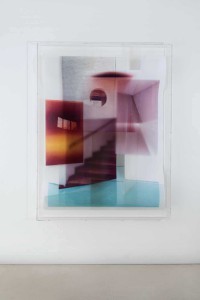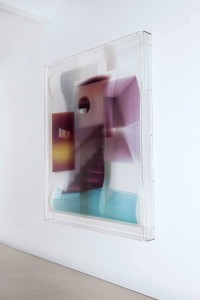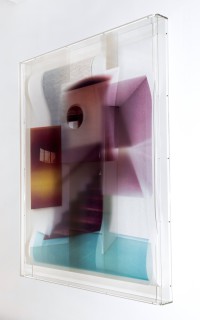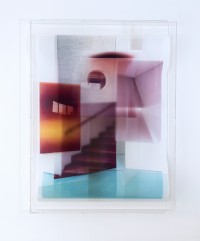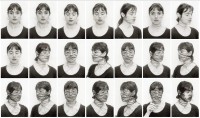10 Nov - 13 Nov. 2022
PARIS PHOTO 2022
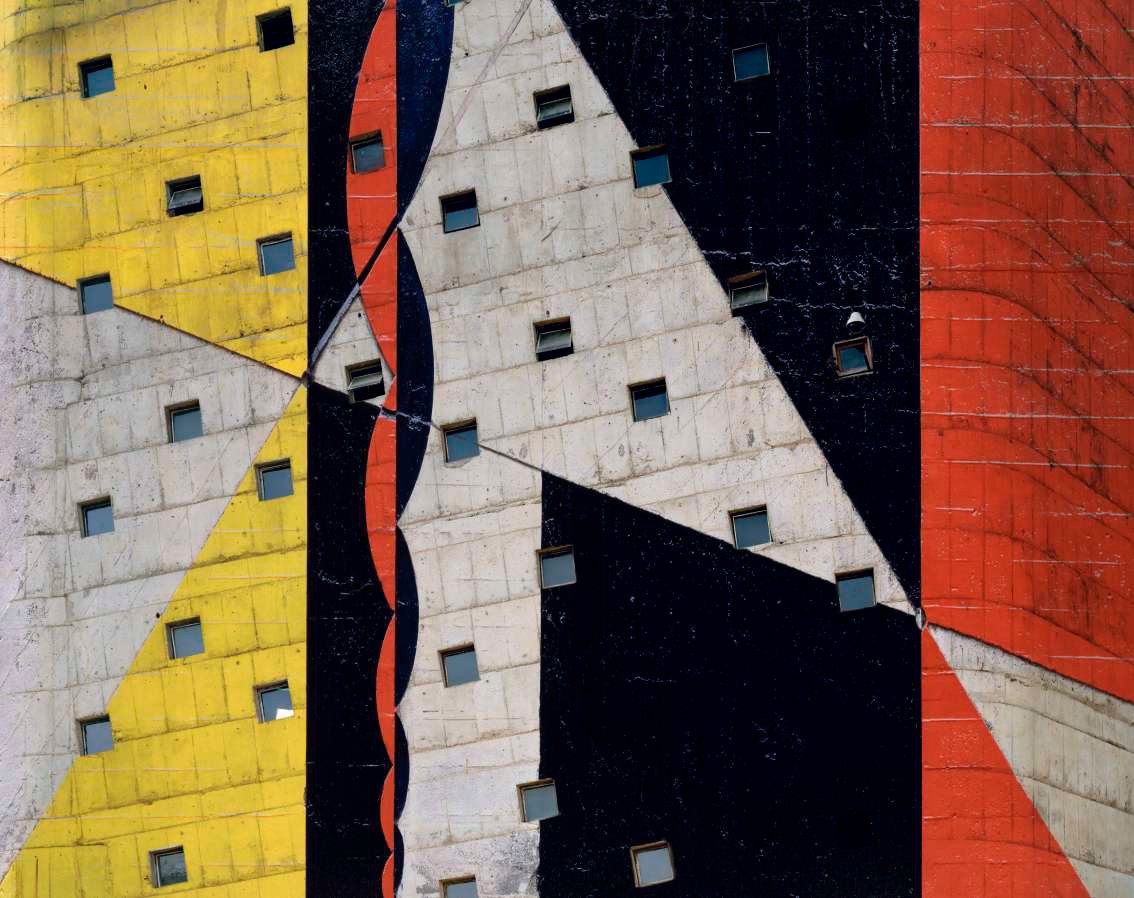
In a joint presentation, the galleries Anita Beckers and Kornfeld, Berlin show works by Thorsten Brinkmann, Stéphane Couturier, Christiane Feser, David Meskhi, Annegret Soltau and Susa Templin. For the 25th anniversary edition of Paris Photo, we have selected artists whose success was significantly promoted by their presentation at this fair, supplemented by positions that decidedly deal with the possibilities and limitations of the medium and its expansion. The artworks intersect themes such as space, dimension and layering as well as a distinctive look into human kind and identity.
The exhibition brings together Templin's spatial layers and Feser's hybrid works that combine the two-dimensional spaces and the transformed layers of three-dimensionality. In a similar vein Couturier explores the photographic boundaries through dierent mediums. Brinkmann's mysterious yet playful anonymous self-portraits create painting-like compositions, made out of found objects, and compliment the daunting though fragile portraits by Soltau. Meskhi captures bold and youthful moments through elegant compositions.
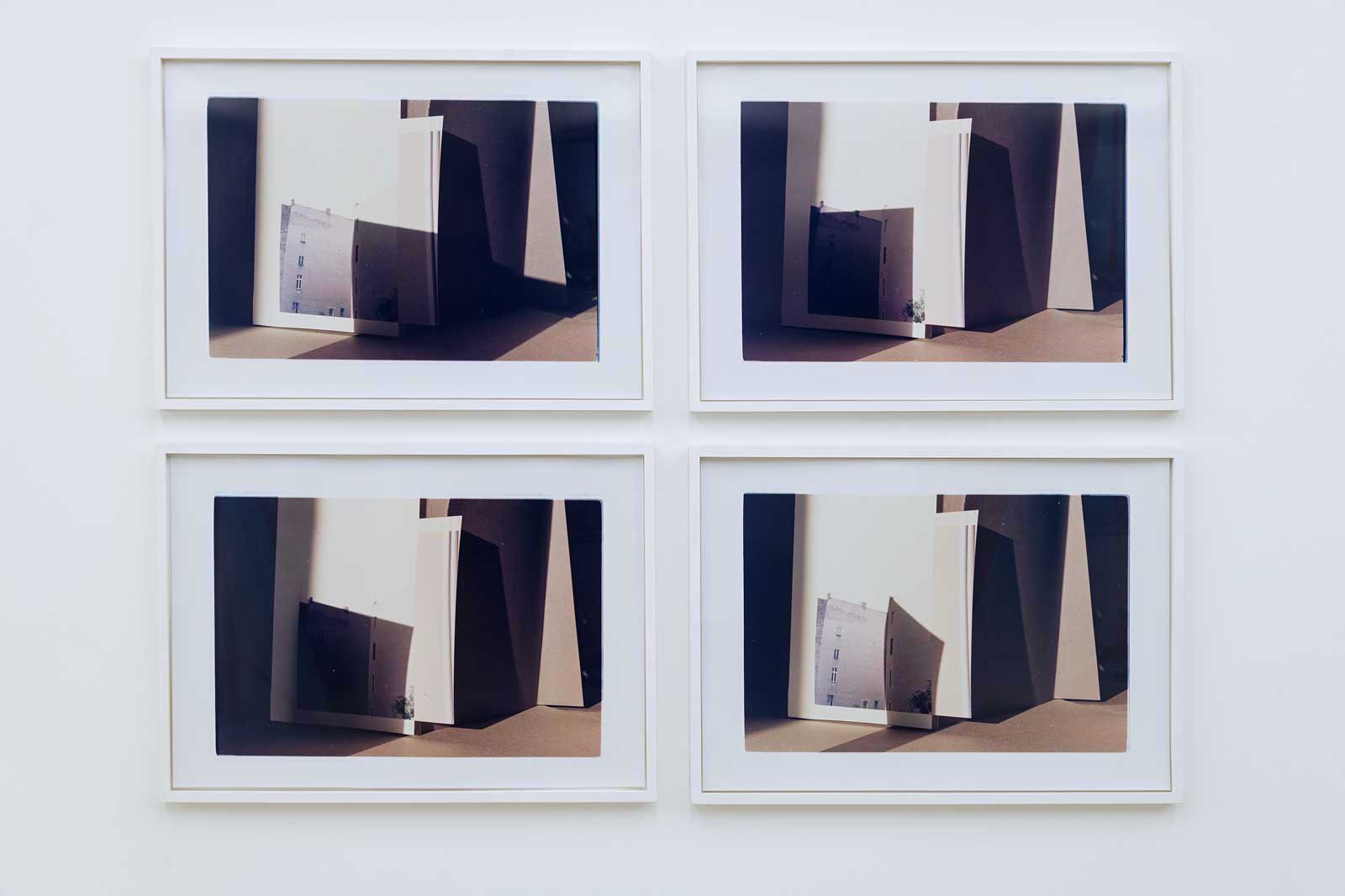
How does perception work in a built space and how can spatial experiences be put into pictures? These are questions SUSA TEMPLIN (*1965 Hamburg, Germany) has been concerned with for a long time. The artist, who lives in Berlin and in Frankfurt am Main, works with photography and three-dimensional spatial models. This is a concept that she concretized during a studio scholarship in New York and has expanded since then.

Templin uses her extensive archive of photographs of room fragments — which are always photographed analogously and processed in her own laboratory — for new, atmospherically dense spatial designs. These fragments can be a corner of a room, a piece of curtain or a certain doorway. With the technical possibilities of photography and installation, the artist creates subjective architectural atmospheres and spaces: places that are associative and real at the same time.
The works of artist CHRISTIANE FESER (*1977 Würzburg, Germany) challenge the viewer through her unique style of photography, deviating from and taking a completely new path to classical photography. Her work extends photography to object, challenging the human, dynamic perception of space in opposition to the static, two- dimensional photographic image. Her work questions the concept of photography and expands it at the same time. She has identified new facets to the question of what we actually see in a photograph. Her compelling works reject the traditional two-dimensional approach and construct a three-dimensional layer that rethinks the medium as a whole. Her work is a constant experiment that pushes photography to its limits and beyond.
STÉPHANE COUTURIER (*1957 in Neuilly-sur-Seine near Paris, France) started his artistic career in Paris of the 1990s. Interested particularly in architectural structures and the transformation of spaces, his work derives from places all over the world—from Paris to Berlin, Havana, Seoul and Algiers, creating fascinating perspectives through his view point that makes the real world appear to almost be arranged for the photographer as well as creating a composition through double exposure. In his practice he explores the boundaries of the photographic medium, manipulating and layering images, creating works in-between photography and painterly compositions. His photographs can be found in over 50 major museum and corporate collections around the world, including Musée de l’Elysée, Centre Georges Pompidou, Los Angeles County Museum, Art Institute of Chicago, National Gallery of Canada, or the Grand-Duc Jean Museum in Luxembourg. Moreover, Couturier was awarded the Nicephore Niepce prize in 2003, the 1999 Grant of Ville de Paris, and the Prix Paris-Photo in 1998 to name a few.
THORSTEN BRINKMANN’s (*1971, Herne) working materials are found objects, bulky waste and things that have become worthless. With these debris of modern culture, he moves humorously and playfully lightly between the genres of photography, sculpture, performance and installation. Photographic self-staging, in which he acts as actor, prop master, director and photographer, is one of his main focuses. Wrapped in second-hand clothes and everyday objects, he transforms himself into anonymous, sometimes grotesque, androgynous figures that playfully reference and counter the compositions of old masters. Photographs are complemented with found objects such as beads or shards to become unique still lifes. Beyond the motif, they form colour and form studies of high aesthetic appeal.

ANNEGRET SOLTAU (*1946, Lüneburg, Germany) is a pioneer in the field of feminist art and Body Art. For over 40 years, she has occupied herself with her physical and mental identity. In doing so, she utilizes her environment, her family and children over and over in her work. The thread that she uses in her performances and self portraits encompasses faces and bodies like a safe cocoon; hidden and distorted, but also flexible. Photomontages of her own body and face sewn over or collaged with black thread are the most well-known works of the german photographer and performer. It all started with a series of wrapping actions where she tied up single people or whole groups with a black thread. In 1975 she began her "Time Experiences" which became a "Female Genealogy" altogether. “My main interest is the integration of body processes in my work, in order to connect body and spirit as equal parts". (A. Soltau)
DAVID MESKHI’S (*1979 in Tbilisi, Georgia) works are his own social documentary, never certain, if the artist is a mere third party voyeur or a part of the scenes he captures. His perspective combined with the subjects in his work is an aesthetic analysis on youth, boyhood and liveliness. Each work is done with elegance and through his unique vision to create a harmonious and frisky composition. Using figurative elements, Meshki opens up an access to abstraction and through his understanding of space and time leads to an expanded conception of reality. By utilizing abstraction as a means to remove the layers of the reality surrounding us, the artist arrives at the purest essence of the present.


